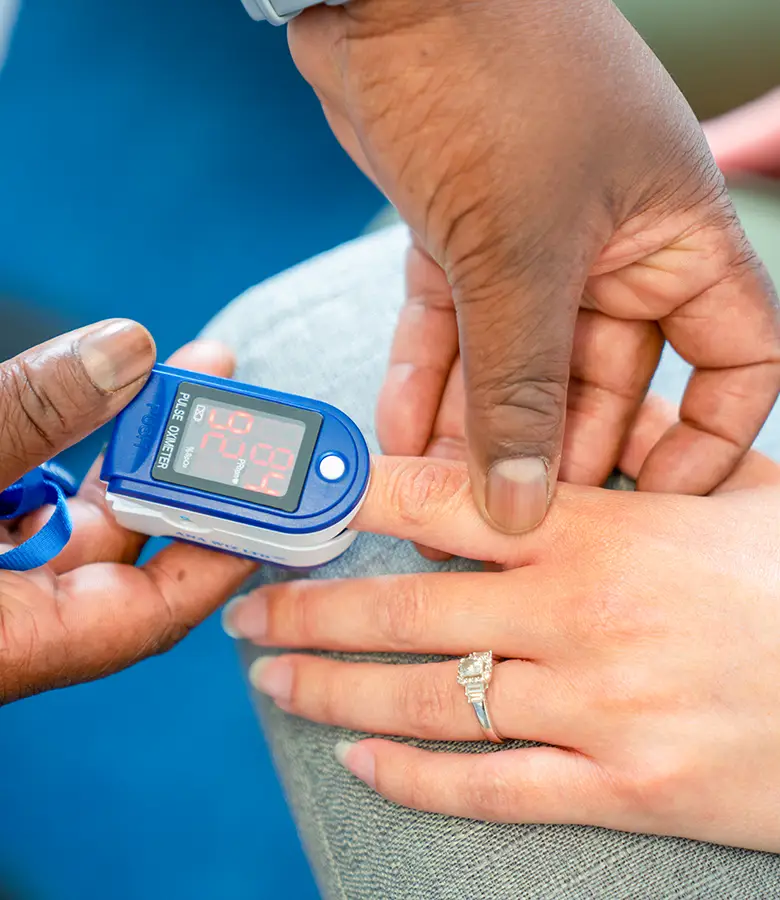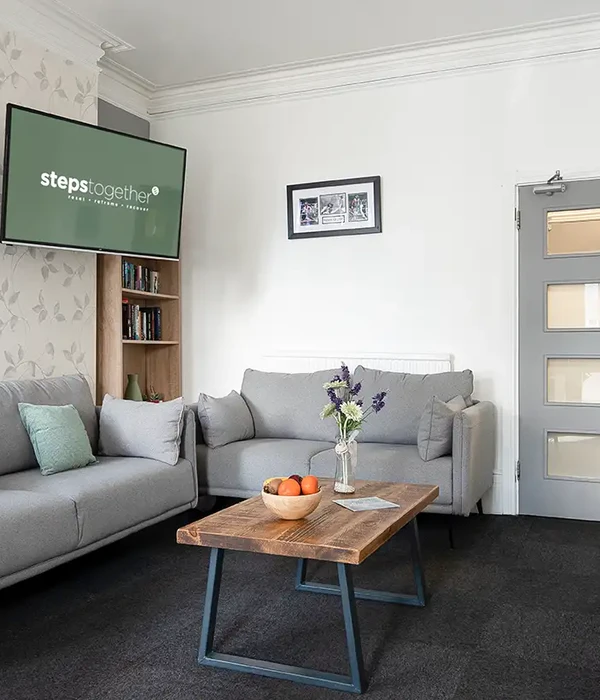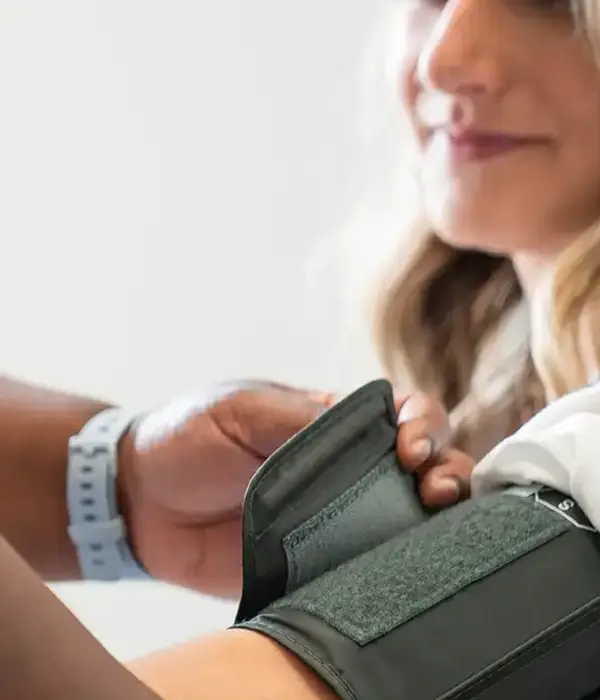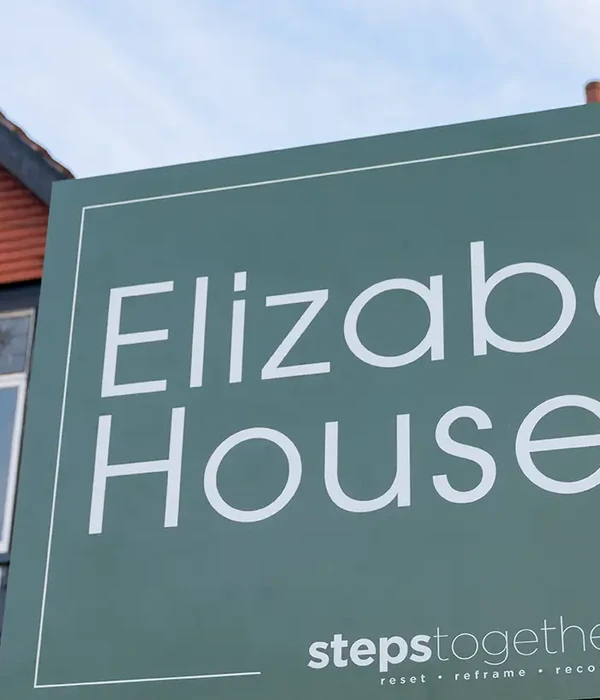Benzodiazepine Addiction Treatment
Benzodiazepine addiction treatment focuses on reducing your dependence safely while giving you the tools and support needed to live without these addictive drugs. You might notice that stopping benzodiazepines on your own can be uncomfortable and sometimes even dangerous.
Many people who develop a problem with substance abuse can benefit from programmes that include gradual dose reduction along with talking therapies, such as cognitive behavioural therapy.

Take the First Step Towards Recovery
Steps Together offers personalised support and proven treatments, providing the care, guidance and encouragement you need to move forward with confidence and build a healthier future.

Understanding Benzodiazepine Addiction
Benzodiazepine addiction is a growing concern, affecting both body and mind. Often prescribed for anxiety, insomnia, or seizures, these sedatives, commonly known as benzos, can quickly become habit-forming. Some of the most recognised types include diazepam, lorazepam, and alprazolam, widely known as Xanax.
Doctors usually prescribe them for short-term use because using benzodiazepines for too long can lead to physical dependence. Side effects of benzodiazepines may include drowsiness, poor coordination, memory problems, and blurred vision. Even when used as directed, your body can build a tolerance, making the drugs less effective over time and increasing the risk of benzodiazepine overdose.
Signs and Symptoms of Benzodiazepine Addiction
Recognising the signs of benzodiazepine addiction early is important so you can get help before the problem gets worse. A strong urge to use the drug, taking more than prescribed, or trying to get extra doses can all be warning signs. You may also notice withdrawal symptoms like anxiety, sweating, shaking, or trouble sleeping when you try to stop.
Other red flags include hiding your use from friends or family, losing interest in activities you once enjoyed, or having trouble managing work and daily tasks. Some people may start combining benzos with alcohol or other substances, increasing the risks even further.


Impact of Benzodiazepine Abuse
Abusing benzodiazepines affects your life in many ways. On the mental health side, you might feel depressed, confused, or have memory problems. Long-term use can make anxiety and other mental health issues worse, even though the drugs are meant to help manage them. In some cases, people experience both addiction and underlying mental health conditions, known as a dual diagnosis, which requires integrated treatment to address both together.
Physical health complications are also a risk of dependence. Drug abuse can lead to withdrawal symptoms like muscle cramps, headaches, nausea, and in severe cases, seizures. Using high doses or mixing with other substances increases the risk of overdose and serious health complications.
Benzodiazepine Addiction Treatment
Effective recovery from benzodiazepine addiction often requires a mix of medical, psychological, and social interventions. Your needs, history, and the severity of your addiction will influence the best approach for you. Benzodiazepine addiction treatment consists of:
Inpatient and Outpatient Treatment Options
Residential treatment treatment involves staying at a residential rehab facility where medical and mental health professionals monitor you at all times. This can be important if your withdrawal symptoms are severe or if you have struggled to quit before.
Outpatient benzodiazepine rehab allows you to receive care while living at home, so you can keep up with work or family responsibilities. You attend therapy and medical appointments several times a week to help you stop using benzodiazepines.
Therapeutic Interventions
Therapy is key to treating benzodiazepine addiction. Cognitive behavioural therapy (CBT) is one of the most effective forms, helping you change negative thought patterns and behaviours that lead to substance use.
Motivational interviewing encourages you to define personal reasons for recovery and develop a strong commitment to change. You may also find group therapy useful, as it provides a space to share experiences and learn from others facing similar problems.
Detox and Aftercare
Benzodiazepine detox is the first step in overcoming dependence and must be done carefully due to potential withdrawal symptoms, which can happen within hours after your last dose of benzodiazepine. Supervised detox provides a safe environment, monitoring your progress and supporting both physical and emotional stability.
Many people in benzo addiction treatment take part in relapse prevention planning and education sessions to help them understand their triggers and how to manage cravings. Drug rehab also teaches you skills to avoid returning to drug use after treatment ends. Structured aftercare is equally important, offering ongoing guidance and support to help maintain recovery once formal treatment is complete.
Family Support and Counselling
Family support and counselling play an important role in addressing the use of benzodiazepines. Addiction does not just affect you, but can also cause stress and tension in your family. Family therapy helps you and your loved ones talk openly about issues caused by misusing benzodiazepines.
Counselling helps rebuild trust and encourages healthy communication. Involving relatives in your treatment plan improves your chances of long-term success and can give you extra motivation.
Types of Benzodiazepines treatment our addiction rehabilitation centres offer
Midazolam Addiction Treatment
Midazolam Addiction Treatment

Assessment of Benzo Addiction
Accurately identifying addiction to benzodiazepines requires careful evaluation, recognising patterns of dependency, and looking for other related health issues. A personalised assessment helps guide safe, effective treatment and supports your long-term recovery.
The first step is a thorough evaluation by a healthcare professional. This includes a detailed history of their addiction and mental health struggles, information about current benzodiazepine use, and any previous attempts to stop or cut down. Screening tools, such as questionnaires, may help identify substance use disorder or dependency.
Personalised Treatment Planning
Once your condition is fully assessed and understood, a dedicated treatment team will create a personalised plan tailored to your specific needs and history. This may include a carefully monitored dose reduction, psychological support, and treatment for any co-occurring mental health issues such as anxiety or depression.
Regular assessments and continuous monitoring are essential throughout the recovery process, allowing your care team to make necessary adjustments as your needs evolve. A structured, well-supported approach to treatment increases comfort, reduces the risk of complications, and is strongly linked to more successful long-term outcomes.

Risks of Benzodiazepine Abuse
Benzodiazepine addiction often shows in your behaviour and body. You might act out of character, avoid friends or family, or seem secretive. Many people notice mood changes, irritability, or even sudden anger. Cravings for the drug can control your actions, leading you to take risks or focus only on getting more medication.
If you stop or reduce the amount of benzodiazepine you use, you may go through benzodiazepine withdrawal. Benzodiazepine withdrawal symptoms can be both physical and psychological. You might suffer from increased anxiety, agitation, and sleep disturbances, such as trouble falling or staying asleep.
Long-term misuse of benzodiazepines increases the risk of several serious health problems. One of the biggest dangers is the risk of overdose, which can cause central nervous system depression. This means your breathing and heart rate may slow down to dangerous levels, sometimes leading to respiratory depression or even death.
Recovery, Relapse Prevention, and Ongoing Care
Ongoing care is important for coping with anxiety, insomnia, and emotions that may lead to relapse. Counselling and support groups, like Narcotics Anonymous, help you build routines for recovery. Family support and professional guidance can make a big difference in your progress.
Relapse Prevention Strategies
Relapse prevention uses practical tools to help you respond to triggers. Learning to cope with stress or cravings is an important part of your recovery. Techniques can include cognitive behavioural therapy (CBT), stress management exercises, and creating daily routines. These approaches are part of structured behavioural health treatment and can be tailored through different therapy modalities to suit your needs.
Make a list of your main triggers, such as places, people, or situations that lead to temptation. Practice healthy habits, including regular exercise, good nutrition, and mindfulness.
Ongoing Care
Ongoing care for benzodiazepine addiction is essential for maintaining recovery and preventing relapse. After treatment, continued support may include going to therapy, medical check-ins, and participating in support groups.
A stable routine, healthy lifestyle, and strong social connections can reinforce progress. With consistent support and monitoring, you can become more resilient, strengthen your coping skills, and stay on track in your journey toward lasting recovery.
Managing Co-Occurring Conditions
Many people dealing with benzodiazepine addiction also have mental health issues such as anxiety, depression, or insomnia. Treating these conditions is critical, since ignoring them can raise your relapse risk.
You might need regular assessments to track mental health symptoms during recovery. Treatment options include medication, talking therapies, or both. It is important to work closely with your doctor to monitor side effects and adjust your care as needed.

Seek Treatment for Benzodiazepine Dependence
Benzodiazepines can be helpful when used correctly, often prescribed to manage anxiety, insomnia, or seizures. However, their calming effects also carry a high potential for misuse, dependence, and addiction, especially with prolonged use. If you or someone you know is struggling with benzodiazepine addiction, getting professional help is essential.
At Steps Together, we provide structured benzodiazepine addiction treatment, often starting with a medically supervised drug detox to manage withdrawal safely. From there, we offer the support and care needed to break free from dependence and begin healing. Recovery is possible, and taking the first step is simple.
Frequently Asked Questions
What are the most effective methods for treating benzodiazepine dependence?
The main approach to treating benzodiazepine dependence is a gradual reduction in dosage, often called tapering. This helps lower the risk of severe withdrawal. Tapering is usually combined with medical supervision and psychological support.
What strategies are recommended to manage withdrawal symptoms associated with benzodiazepine cessation?
Managing withdrawal typically involves tapering the dose over time, allowing the body to adjust slowly. Doctors may also use non-addictive medications to ease anxiety, insomnia, or muscle aches.
What role does counselling or therapy play in recovering from benzodiazepine addiction?
Counselling and therapy address the underlying causes of addiction, like anxiety or trauma. Cognitive behavioural therapy helps change unhealthy patterns of thinking and behaviour linked to drug use.
Can long-term benzodiazepine users successfully detox, and if so, how?
Long-term users can detox from benzodiazepines with proper medical help. A slow and steady reduction in dosage, under the care of a healthcare professional, is key. The process may take weeks or even months.
Are there any risks associated with the sudden discontinuation of benzodiazepine usage?
Stopping benzodiazepines suddenly, often called ‘cold turkey’, can be very dangerous. Risks include seizures, panic attacks, high blood pressure, and confusion. There is also a higher chance of serious physical problems and relapse.
How do support groups contribute to the treatment and recovery process for benzodiazepine addiction?
Support groups offer a sense of connection and understanding with others facing similar struggles. They encourage, share coping strategies, and help reduce feelings of isolation.





